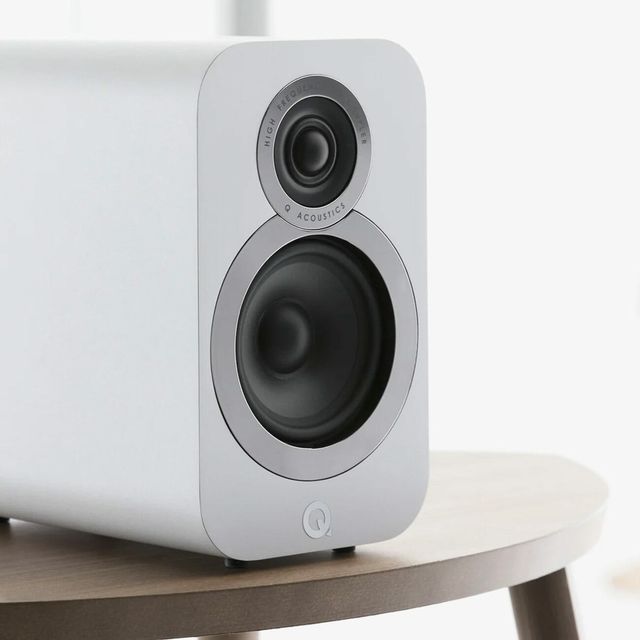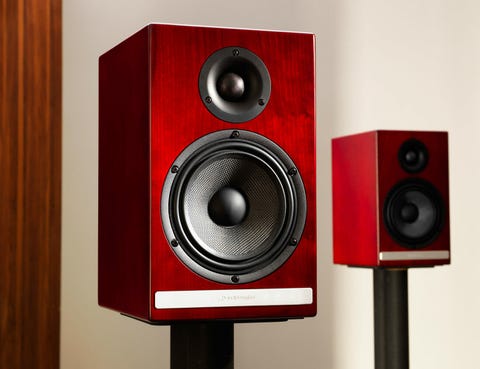Welcome to Product Support, a column devoted to helping you get the most out of the stuff you already use.
One of the great things about a good pair of passive loudspeakers is that they can last a lifetime. Unlike many of today’s powered and active loudspeakers, passive loudspeakers have no built-in technological limits. No new wireless protocol or firmware update is going to render them irrevocably obsolete. That’s why still able to hook up the heritage Klipsch or Wharfedale loudspeakers that you’ve had for decades to your present-day system. And if you buy new passive loudspeakers today, you’ll be able to do the same with them in 30 years’ time, too.
That is, if you take good care of them. Like any quality piece of analog equipment, whether it’s a vintage Marantz receiver or an old Thorens turntable, you’ve got to take care of passive loudspeakers in order for them to sound their best. Here are a couple of quick tips that any can do to make sure their loudspeakers look and sound as good as possible for years to come.
Fight the dust.
Dust is probably the number one enemy of loudspeakers. And it’s not just an aesthetic concern! Dust infiltrates the wire connectors — the place where the wire and metal meet — and disrupts the electric signals that run between the source and the loudspeakers. This adds noise to your system’s sound, which obviously isn’t a good thing. In some cases, the excess dust can damage the wiring and loudspeakers themselves.
To prevent dust, it’s best to make sure that you place the loudspeakers in a room that doesn’t accumulate a lot of dust. That can be easier said than done, so easy step to take is to simply clean the loudspeakers (and your overall system) regularly. Dust pads, dry cloths, air canisters and vacuum cleaners are all safe to use on your loudspeakers, just try not to damage the cone drivers or tweeter. Don’t use any kind of liquids on your speakers.
Protect against the heat.
Keep loudspeakers away from the windows and out of direct sunlight. Sun exposure can cause the loudspeakers to overheat, especially if they don’t have less-than-perfect thermal design, and can damage the electromagnetic voice coils that are vital for maintaining the electrical flow between the loudspeakers and its source.
The Audioengine HDP6 are high-performing passive bookshelf speakers that typically go for $400.
Beware of static electricity.
Other than dust and heat, static electricity is the other big enemy for loudspeakers. A build-up in static electricity can actually result in burn-out of your system. To guard against that, consider investing in anti-static floor mats for your carpets. Dry air is an insulator that allows static to build up to a potentially dangerous level, so you can actually fight against it by getting a humidifier for the room your system is in — just don’t place it too close to your loudspeakers.
Make sure there’s proper ventilation.
Making sure that there’s adequate airflow around the loudspeakers is key as it helps cool them down while they’re playing. Audiophiles will tell you that having fans blowing on the loudspeakers while they’re playing loudly helps to keep them cool, too. You can arrange your system to support proper airflow by positioning your loudspeakers at least several inches away from walls and tight spaces, or by placing bookshelf speakers on top speaker stands so that they’re away from crowded bookshelves. In addition to helping prolong the life of the loudspeaker, proper airflow also improves the sound quality; there’s less distortion due to vibrations and overheating.
Protect against power surges.
This is mostly for higher-end speakers and audio systems, but it’s important to be able to control how your system gets power. Even though passive loudspeakers don’t connect directly to power, the music source (receiver, amplifier or turntable) that it’s connected to does, and an abrupt surge in power can be really damaging to every component in a system. This is why its wise to invest in Uninterruptible Power Supply (USP) and Voltage Regulator, like this Furman F1500-UPS, so they can better protect and monitor their system.
Note: Purchasing products through our links may earn us a portion of the sale, which supports our editorial team’s mission. Learn more here.


















